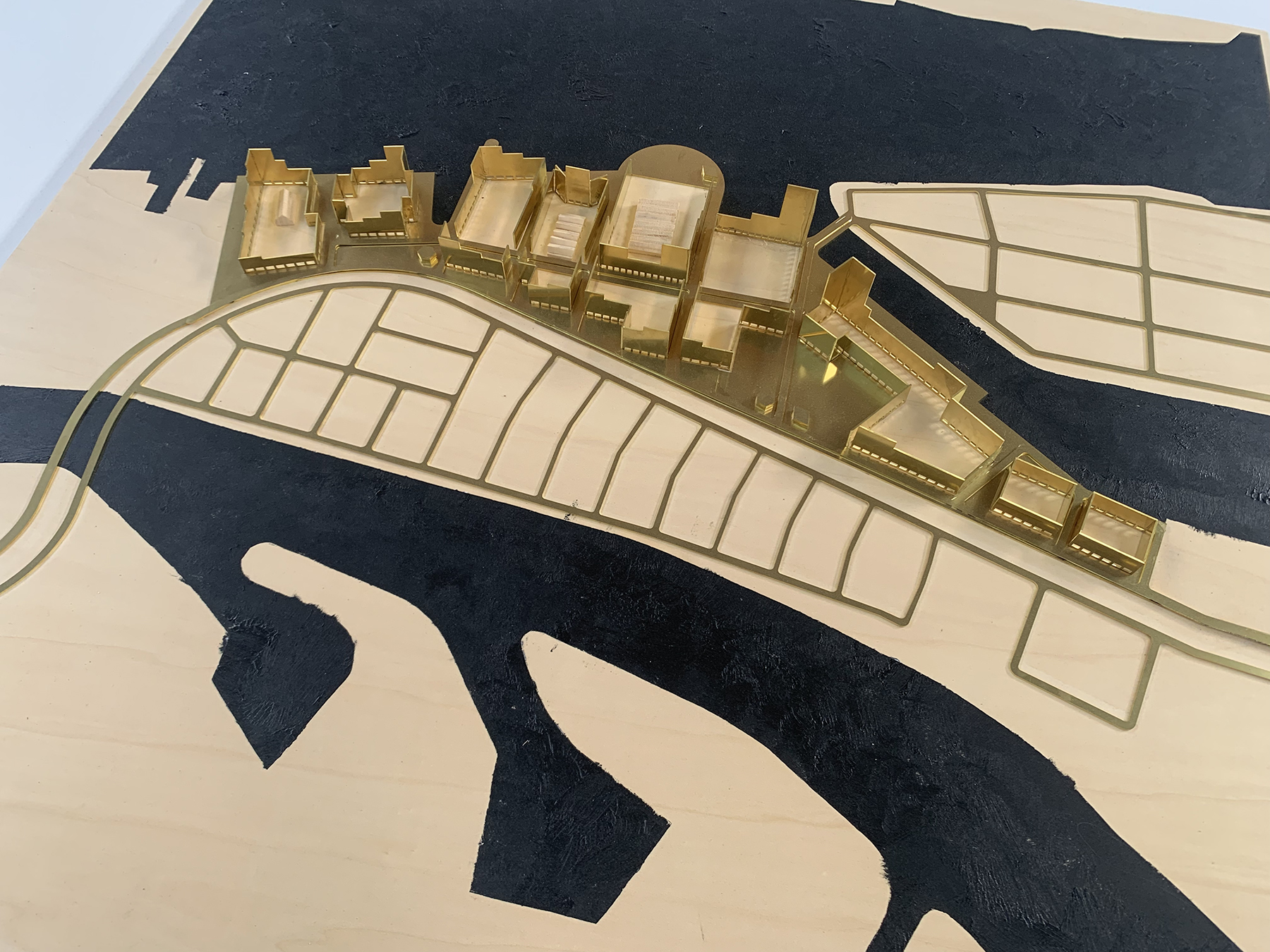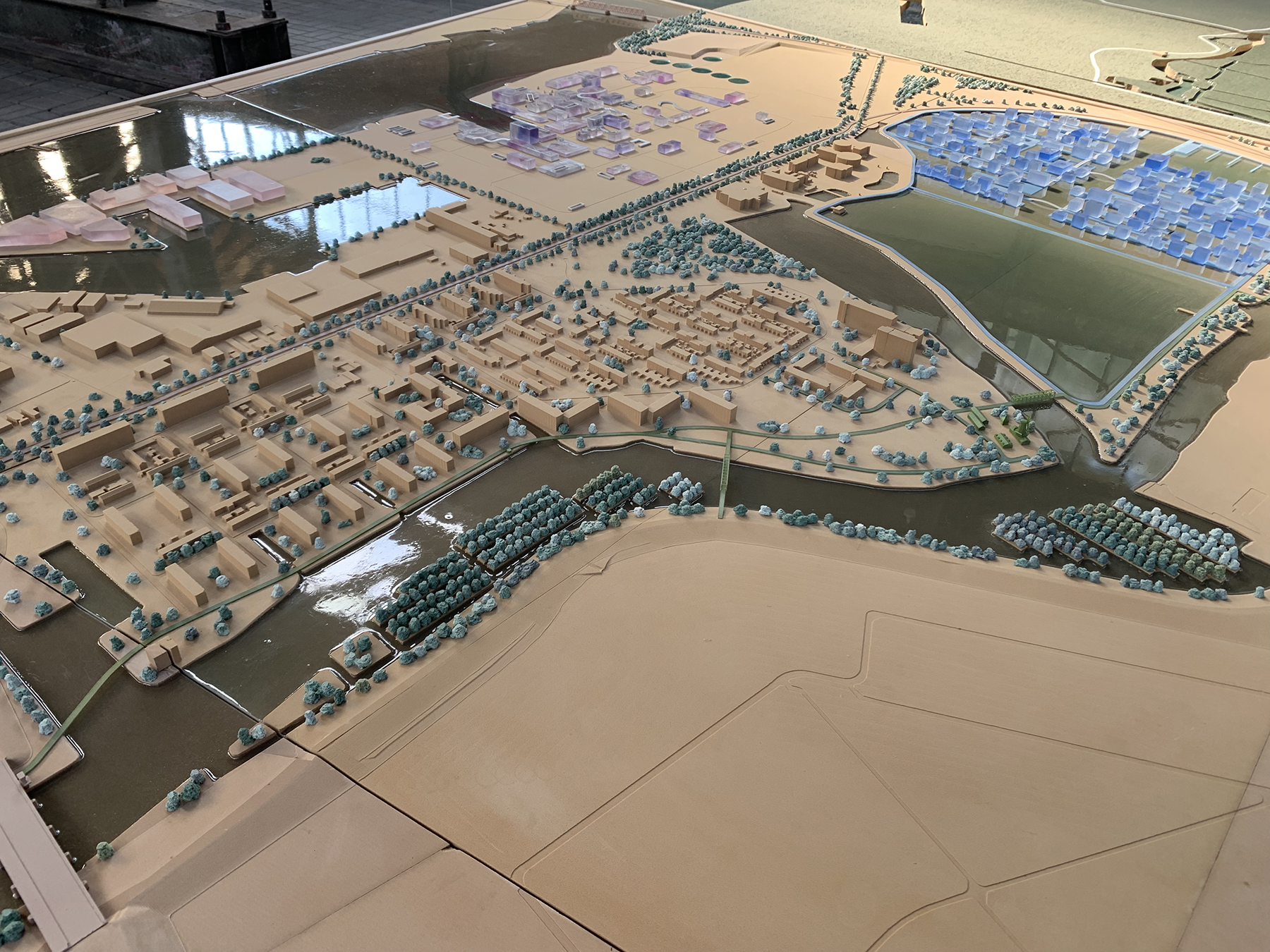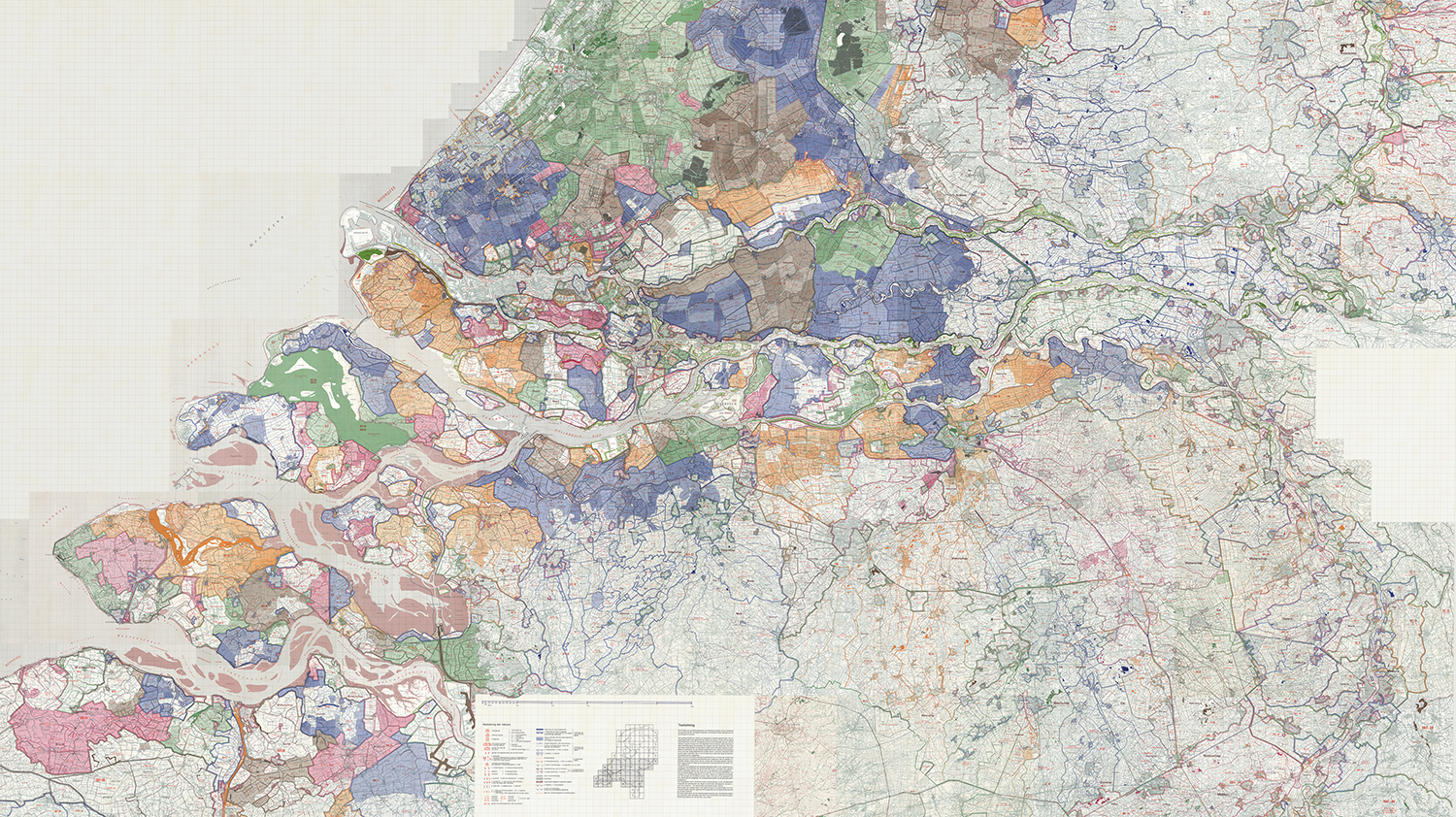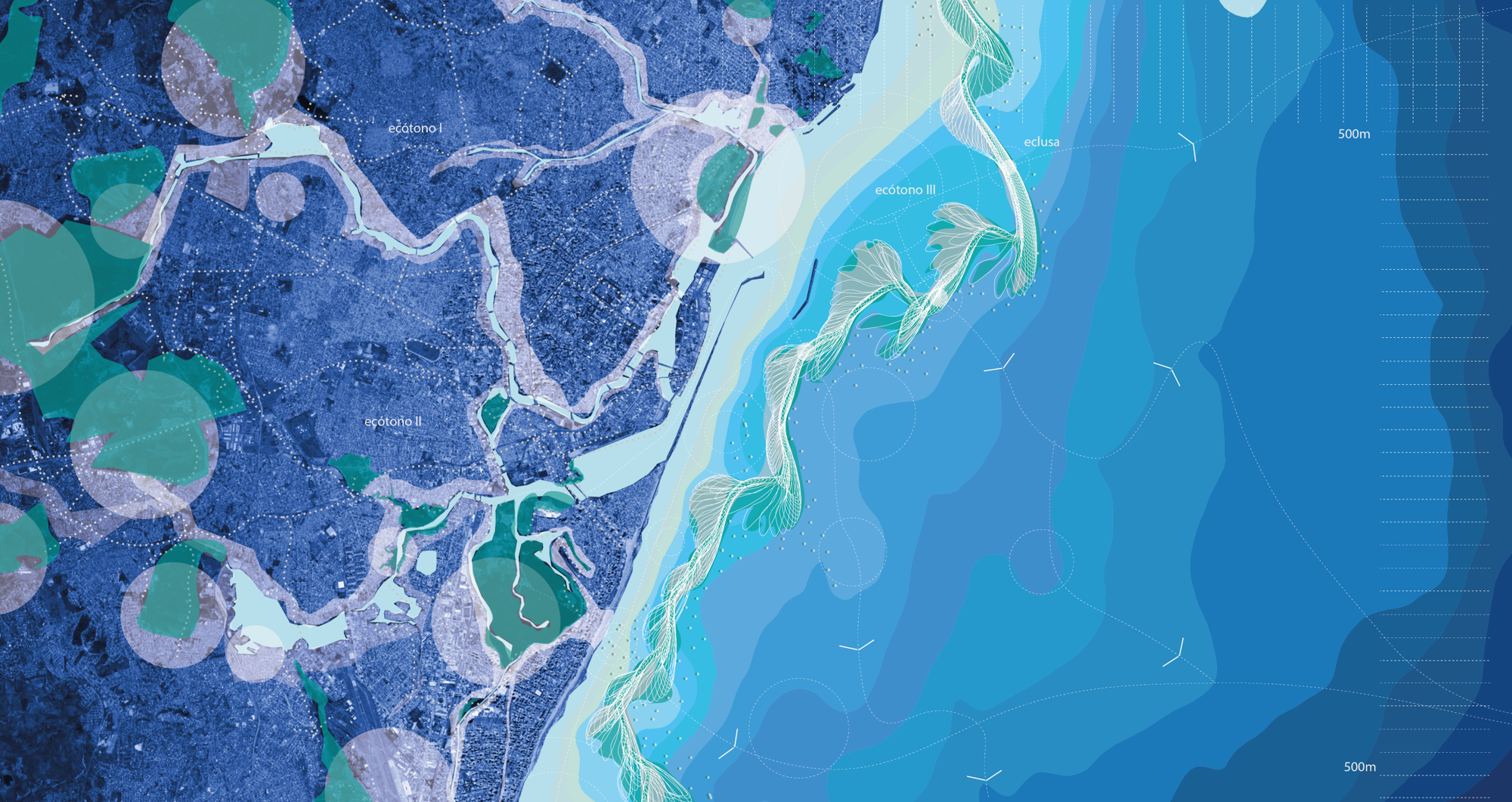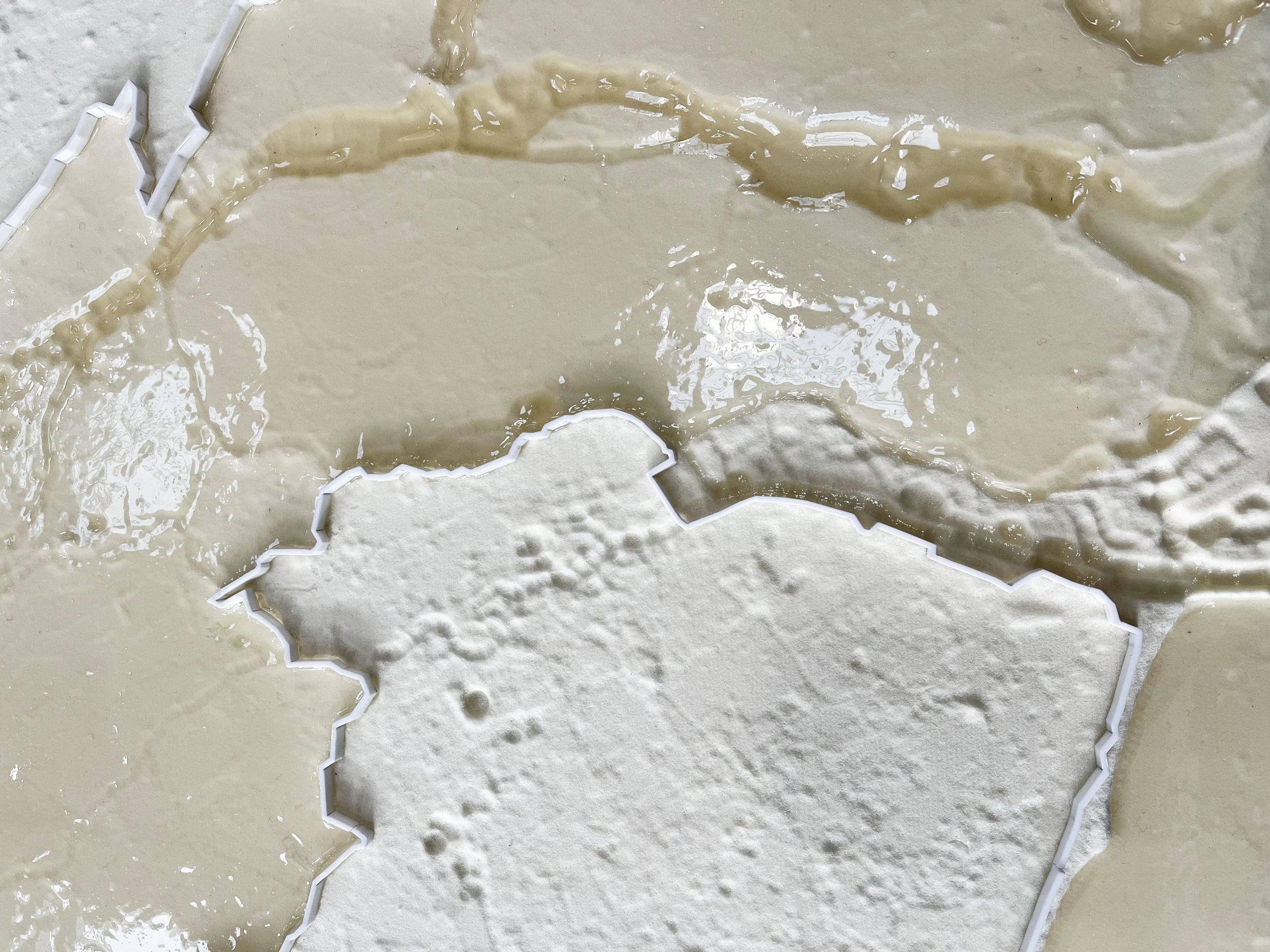
RDD Design Study Exhibited at IABR ‘It’s About Time’
It is about time in Delta Design to create a new Dutch condition. Redesigning Deltas investigates new forms of interdisciplinary design in which urban, landscape and engineering disciplines project a future founded on the natural and spatial qualities of specific ‘moments’ in the Dutch delta system: the port, the sea arms, the polder, the rivers, and the streams. To arrive at a Resilient Delta in 2122 the five teams of the design study delivered a manifest of a new approach how-to live-in harmony with the dynamics of the delta.
The five projects each illustrate this manifesto in the merits of the typical location they worked in. The Limburg team (Defacto, Vista and Arcadis) enforced the landscape as a buffer and quality of life balance in the valley of the Geul. The team of the river corridor, Waal (Fabrications, Bosch Slabbers and Tauw) defines a new border condition of the river area in which there is a new form of living with the natural and dynamic river system. The team that worked on Rotterdam as a port city (Urbanisten, Lola and Royal Haskoning DHV) enlarged and enforced dike ring 14 to create Rotterdam as a lake city and proposed economic protection by raising systematically over time the port. The Rotterdam polder team (Zus, Flux and Sweco) created a clear definition spatially of the relation between city and hinterland by protecting Delftland as a productive landscape. The team that worked in Zeeland (Studio Hartzema, Feddes-Olthof and Witteveen & Bos) did an extensive study by using three parallel futures that present a range between enforcing more land and letting go of land.
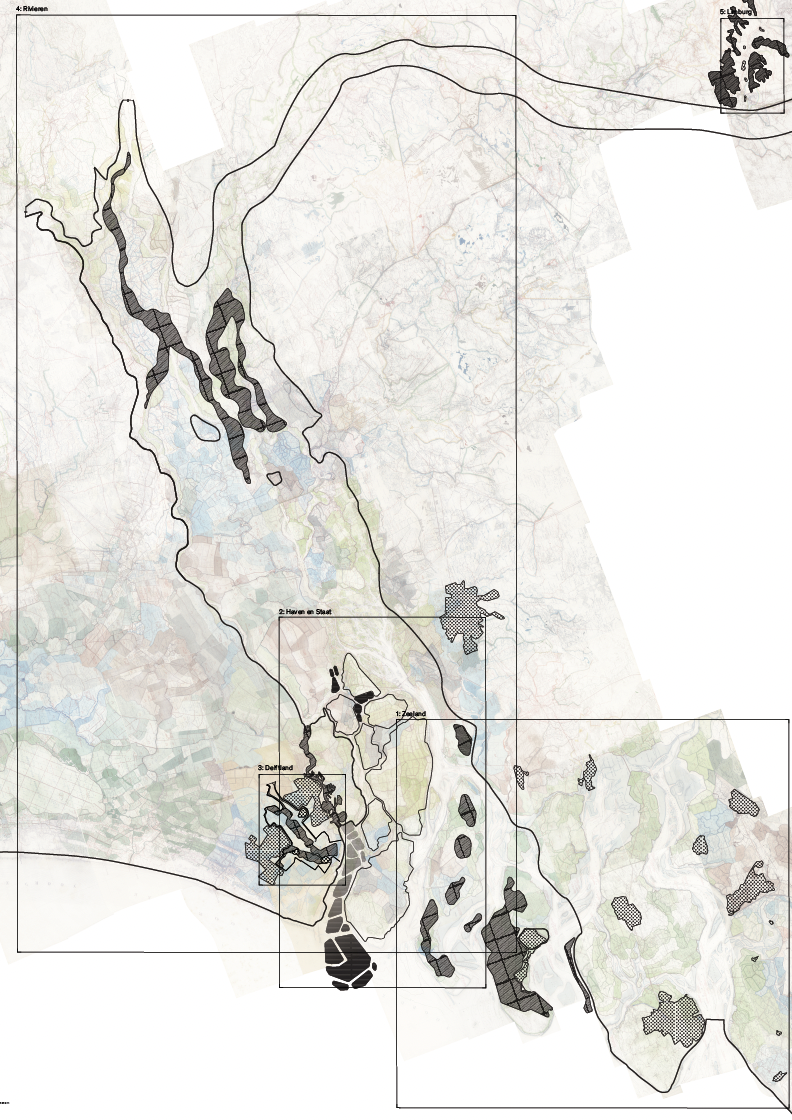
‘It’s about time’ marks the urgency of taking responsibility for a sustainable and inclusive world. Redesigning Deltas as a movement is in line with this activist perspective on transformation and focuses on the instrumental side of design. The power of design lies in the ability to see beyond the existing reality, drawing from previous path dependencies and envisioning new relations that are able to trigger fundamental systemic change. It enables change in ways of doing that created the existing reality in the first place. It initiates or disrupts ways of living over time.
It is essential to identify and understand pathways to a sustainable and inclusive delta in which transformations are likely necessary. Collective inter-disciplinary knowledge production is required to develop these (transformation) pathways, and the success of collective knowledge production does require a design-based approach, in which different perspectives are recognized and joint new perspectives are developed.
RDD Booklet IABR-1-Rotterdam Region
RDD Booklet IABR-3-Midden Delfland







